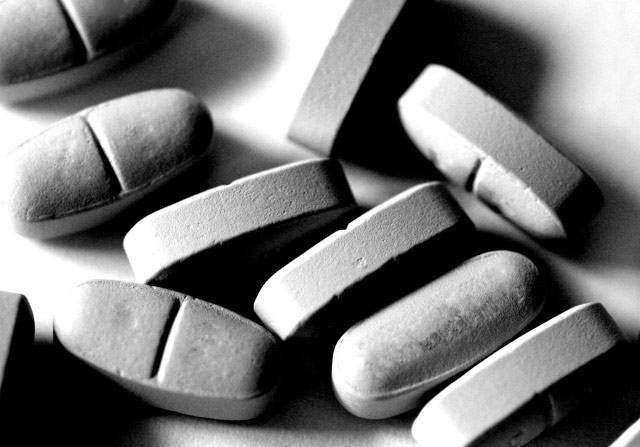Homeopathy Shake-Up Goes Global

Get the world’s most fascinating discoveries delivered straight to your inbox.
You are now subscribed
Your newsletter sign-up was successful
Want to add more newsletters?

Delivered Daily
Daily Newsletter
Sign up for the latest discoveries, groundbreaking research and fascinating breakthroughs that impact you and the wider world direct to your inbox.

Once a week
Life's Little Mysteries
Feed your curiosity with an exclusive mystery every week, solved with science and delivered direct to your inbox before it's seen anywhere else.

Once a week
How It Works
Sign up to our free science & technology newsletter for your weekly fix of fascinating articles, quick quizzes, amazing images, and more

Delivered daily
Space.com Newsletter
Breaking space news, the latest updates on rocket launches, skywatching events and more!

Once a month
Watch This Space
Sign up to our monthly entertainment newsletter to keep up with all our coverage of the latest sci-fi and space movies, tv shows, games and books.

Once a week
Night Sky This Week
Discover this week's must-see night sky events, moon phases, and stunning astrophotos. Sign up for our skywatching newsletter and explore the universe with us!
Join the club
Get full access to premium articles, exclusive features and a growing list of member rewards.
When is a sugar pill deadly? When it is substituted for real medicine, the Japanese public has come to understand.
The Japanese government is investigating numerous deaths that occurred over the past year resulting from the practice of homeopathy, which has been growing in popularity, particularly among midwives. Several lawsuits are pending.
Deaths include a 2-month-old baby girl born with a vitamin K deficiency, whose mother's midwife administered a homeopathic treatment instead of the much-needed vitamin K injection, well-known to prevent hemorrhaging. The infant died from bleeding in the skull.
As more cases surface, the nation's top science group, the Science Council of Japan, has weighed in, with its president, Ichiro Kanazawa, stating at a press conference on Aug. 24 that "homeopathy's therapeutic value has been scientifically and utterly disproved." Homeopathy treatments are nothing more than sugar pills, he said.
Japan may soon join Switzerland and Germany, where governments have concluded that homeopathy is ineffective; national health insurance no longer reimburses for homeopathic treatments there. (Ironically, homeopathy originated in Germany 200 years ago.)
Other European nations might follow suit, too. After a scathing report on homeopathy by the U.K. House of Commons Science and Technology Committee in February 2010, the British Medical Association this August called upon the U.K. National Health Service to refuse payments for homeopathy, to eliminate funding for homeopathic hospitals, and to otherwise instruct doctors to not prescribe, refer, or recommend homeopathy to patients.
Natural or supernatural
Get the world’s most fascinating discoveries delivered straight to your inbox.
Is this big medicine beating up the little herbal practitioner? Not at all. The biggest misconception is that homeopathy is herbal medicine. Herbs have therapeutic value. Homeopathy, however, is devoid of herbs or anything medicinal.
Homeopathic medicines might start with an herb or mineral. Oscillococcinum, the top homeopathic flu remedy, starts with duck liver. Remedies are diluted in 10- or 100-parts water over and over again, based on centuries' old recipes, until there is no longer any original ingredient.
So, the second biggest misconception is that homeopathic pills contain minute concentrations of medicine. Often the news media use the words "highly diluted" when in fact homeopathy is just highly delusional.
Oscillococcinum, for example, has a 200C concentration: One part duck offal was mixed with 100 ("C") parts water; this dilution was added to more water at a 1-to-100 ratio; and the process was repeated another 199 times. In the end, there is one part duck in 100 to the 200th power (or 1 followed by 400 zeroes) parts water.
You are left with simply water. Even the more "concentrated" homeopathic medicines — 24X, or 10 to the 24th parts water— amount to a pinch of medicine sprinkled in the Atlantic Ocean.
Homeopathic practitioners don't deny this little discord with physics. Homeopathy was developed before the troublesome concepts of atoms and molecules. The argument now is that the homeopathic solutions coated upon sugar pills remember the shape of the medicine they once contained.
Alas, this too violates reality. A water molecule's shape is distorted by other molecules for mere picoseconds before settling back to normal; there's no water memory. If this were the case, all water on the planet would be a homeopathic treatment for every ailment, because it once touched every herb, mineral, or animal liver in the homeopathy canon.
You have a homeopathic treatment for food poisoning (arsenic at 24X) coming out of your faucet, provided you cut it a few times with pure water.
Proof or placebo
Plenty of studies show how homeopathy can work; many show how prayer or psychic distance healing can work, too. Homeopathy is rather effective for ailments that go away on their own, such as diarrhea and colds.
As documented in the February House of Commons report, homeopathy is shown to be less and less effective as studies get better and better. This same sentiment has been supported by thorough analyses by doctors in Switzerland and Germany and, for that matter, by the U.S. National Center for Complementary and Alternative Medicine, once led by a homeopath, which concludes there's little evidence to support homeopathy for anything.
Unlike many other fields of alternative medicine, dominated by quacks and frauds, homeopathy tends to attract intelligent health practitioners who truly believe in the efficacy of the treatments. Maybe homeopathy is an effective placebo. In that case, if you want the sugar pills to work, forget you read this article.
But please, don't trust homeopathy for your baby.
- 7 Solid Health Tips That No Longer Apply
- 5 Myths About Women's Bodies
- Top 10 Mysterious Diseases

Christopher Wanjek is a Live Science contributor and a health and science writer. He is the author of three science books: Spacefarers (2020), Food at Work (2005) and Bad Medicine (2003). His "Food at Work" book and project, concerning workers' health, safety and productivity, was commissioned by the U.N.'s International Labor Organization. For Live Science, Christopher covers public health, nutrition and biology, and he has written extensively for The Washington Post and Sky & Telescope among others, as well as for the NASA Goddard Space Flight Center, where he was a senior writer. Christopher holds a Master of Health degree from Harvard School of Public Health and a degree in journalism from Temple University.
 Live Science Plus
Live Science Plus










